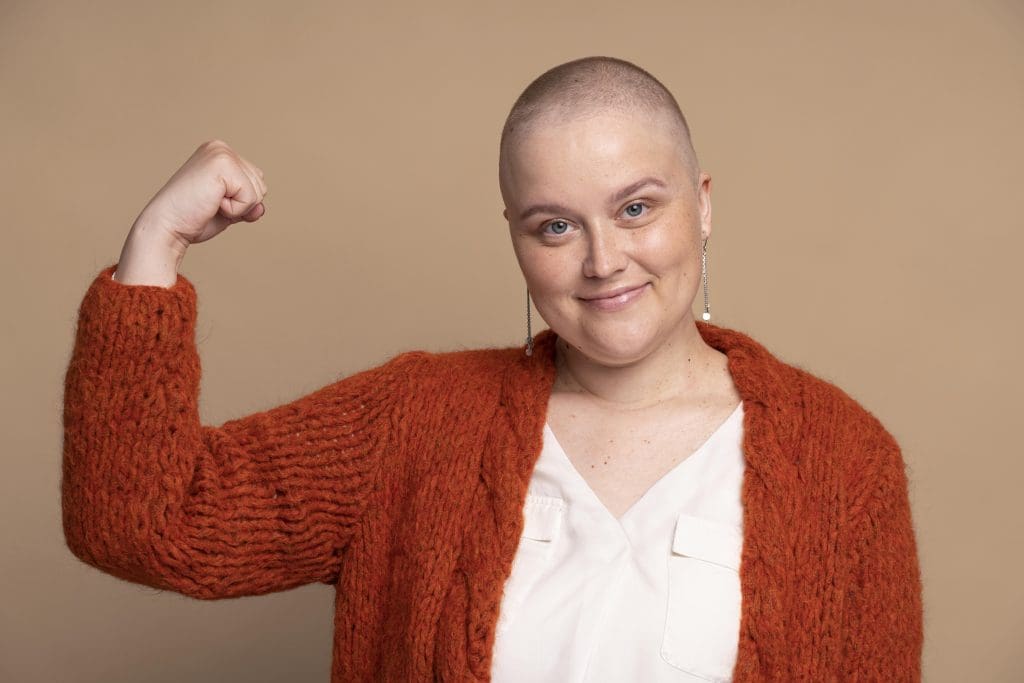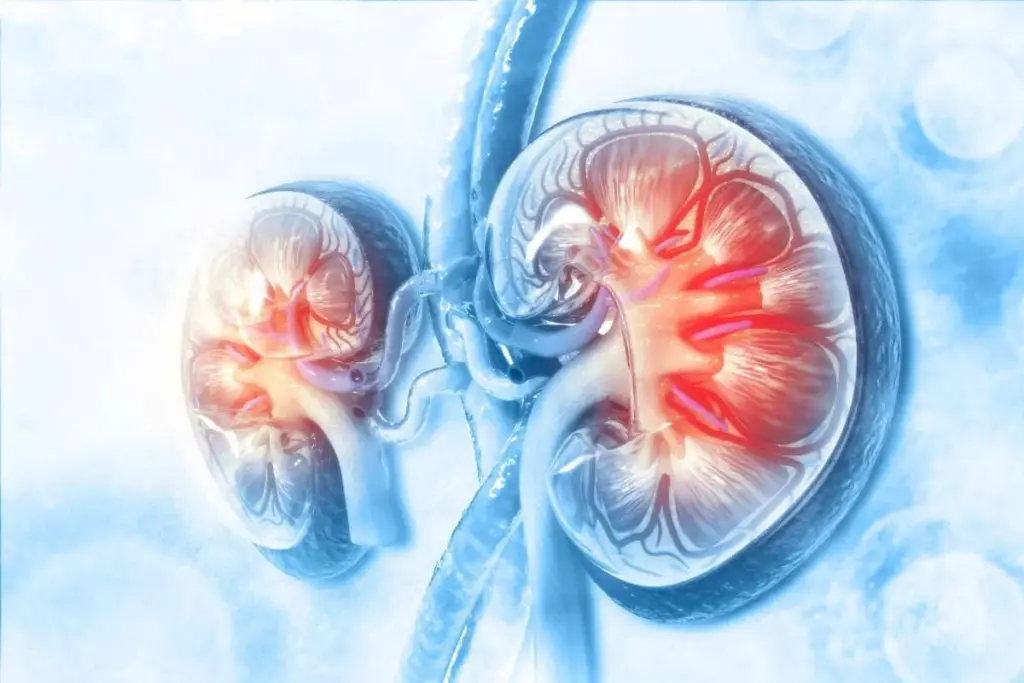What Should Cancer Survivors Avoid? After treatment, cancer survivors face new health challenges. Research shows that lifestyle choices and environmental factors greatly affect their quality of life.
Knowing what to avoid is key for supporting recovery and long-term health. This article will cover the main things cancer survivors should steer clear of to stay healthy.
Key Takeaways
- Avoid certain foods that can hinder recovery
- Make informed lifestyle choices to support health
- Be aware of environmental factors that can impact wellbeing
- Understand the importance of a balanced diet for cancer survivors
- Learn how to manage stress and maintain mental health
The Journey of Cancer Survivors: A New Health Chapter

Cancer survivorship brings new challenges, like understanding body changes and preventing recurrence. Survivors must navigate a complex health landscape after treatment.
Understanding Your Changed Body After Treatment
Cancer treatment can change the body in many ways. It’s vital for survivors to grasp these changes to manage their health well. The immune system is key in preventing cancer from coming back.
Research shows that nutrition, stress, and lifestyle affect the immune system. “The immune system is like a fine-tuned machine,” says a leading oncologist. “After cancer treatment, it’s essential to support its function through healthy habits and informed choices.”
The Science Behind Cancer Recurrence Prevention
Studies aim to understand the genetic changes that lead to cancer recurrence. Knowing these changes helps in creating prevention strategies. Recent research has highlighted the importance of monitoring for signs of recurrence, allowing for early action.
- Regular follow-up appointments with healthcare providers
- A healthy diet rich in fruits, vegetables, and whole grains
- Engaging in regular physical activity tailored to the individual’s abilities
By using these strategies and understanding cancer recurrence science, survivors can stay healthy.
Dietary Considerations for Cancer Survivors
Eating well is more than just fuel for cancer survivors. It’s a smart way to help them heal and lower the chance of cancer coming back. Nutrition is key in this new chapter of health.
How Nutrition Impacts Recovery and Recurrence Risk
Nutrition greatly affects how well someone recovers and their chance of cancer coming back. Research has shown that some nutrients can make a big difference. It’s important for survivors to know how diet fits into their health plan.
Researchers are working to find the best diets for survivors. Eating lots of fruits, veggies, and whole grains is good. These foods give important nutrients and antioxidants that help the body heal.
“The relationship between diet and cancer recurrence is an area of ongoing research, with evidence suggesting that nutritional factors can influence outcomes.”
Building a Healthy Diet for Cancer Survivors
Creating a healthy diet is more than just avoiding bad foods. It’s about making a balanced plan that boosts health. Key components include a variety of fruits, veggies, lean proteins, and whole grains.
- Incorporate a rainbow of fruits and vegetables to maximize antioxidant intake.
- Choose lean proteins like poultry, fish, and legumes.
- Whole grains, such as brown rice and quinoa, are rich in fiber and nutrients.
When to Consult with an Oncology Nutritionist
While general diet tips are useful, everyone’s nutritional needs are different. Talking to an oncology nutritionist can offer personalized advice. This advice is based on your health, treatment, and nutritional needs.
An oncology nutritionist can craft a diet plan that supports recovery. They also address any nutrition challenges from cancer treatment.
Foods Cancer Survivors Should Limit or Avoid
Cancer survivors need to make smart food choices to lower the chance of cancer coming back. Some foods can increase cancer risk. Knowing which ones can help survivors eat better.
Processed Meats and Cancer Risk Connection
Processed meats like bacon, sausages, and ham are bad for you, says the World Health Organization. They found a strong link between these meats and colorectal cancer. It’s best for cancer survivors to eat less of these.
Red Meat Consumption Guidelines
Red meat, including beef, pork, and lamb, might raise cancer risk. But not all studies agree. It’s important to eat it in moderation. The American Cancer Society suggests eating less red meat. Eating a variety of protein sources can help reduce risks.
Ultra-Processed Foods and Inflammation
Ultra-processed foods are full of unhealthy fats, sugars, and salts. They can cause chronic inflammation, which is bad for cancer survivors. It’s best to avoid or eat less of these foods.
Sugar, Refined Carbohydrates and Cancer Cells
Eating too much sugar and refined carbs can lead to insulin resistance and inflammation. This can help cancer cells grow. Eating whole, unprocessed foods like veggies, fruits, and whole grains can help manage these risks.
| Food Category | Potential Cancer Risk | Recommendation |
| Processed Meats | Increased risk of colorectal cancer | Limit or avoid |
| Red Meat | Associated with increased risk of certain cancers | Consume in moderation |
| Ultra-Processed Foods | Leads to chronic inflammation | Minimize or avoid |
| Sugar and Refined Carbohydrates | May fuel cancer cell growth | Choose whole, unprocessed foods |
Alcohol Consumption and Cancer Survivorship
The link between alcohol and cancer survivorship is complex. Cancer survivors often look for safe alcohol levels to lower cancer recurrence risk.
Research on Alcohol and Cancer Recurrence Rates
Studies on alcohol and cancer recurrence show mixed results. For example, breast cancer survivors might see a slight increase in recurrence risk with moderate drinking. But, other cancers might not show a clear link.
A study in the Journal of Oncology found moderate drinking could raise cancer recurrence risk. Yet, the evidence is not solid, and more research is needed.
Safe Consumption Guidelines Based on Cancer Type
Because research varies, cancer survivors should talk to their about alcohol. For some cancers, like breast cancer, being careful with alcohol is advised.
| Cancer Type | Recommended Alcohol Consumption Limit |
| Breast Cancer | Limit to 1 drink per day or less |
| Other Cancers | Varies; consult healthcare provider |
Cancer survivors should talk to their healthcare team. This will help figure out the best alcohol guidelines for them.
Tobacco and Smoking: Critical Risks for Cancer Survivors
Cancer survivors face many challenges, but tobacco use is a big risk. Smoking can harm their health and recovery. It can also raise the chance of cancer coming back and lower their survival chances.
How Smoking Affects Recovery and Recurrence
Smoking is linked to many cancers, and it’s bad for cancer survivors. It can slow down recovery and increase the chance of cancer coming back. Studies show quitting smoking can help, lowering the risk of new cancers and improving survival rates.
Smoking damages DNA and weakens the immune system. It also helps tumors grow. Quitting smoking is key for cancer survivors to reduce these risks and have a better outlook.
Evidence-Based Strategies for Quitting Successfully
Quitting smoking is hard, but there are proven ways to help. These include:
- Counseling and therapy to tackle nicotine addiction.
- Nicotine replacement therapy (NRT) to ease withdrawal symptoms.
- Prescription drugs like bupropion and varenicline to help quit.
- Support groups and resources for encouragement and guidance.
By using these methods, cancer survivors can boost their chances of quitting. This can improve their recovery and lower the risk of cancer coming back.
Environmental Exposures Cancer Survivors Should Minimize
Cancer survivors need to know about environmental exposures that could affect their health. These factors are important for our well-being. Being careful about them can help reduce risks.
Sun Exposure and Skin Protection Strategies
Sun exposure is a big risk for skin cancer, and it’s even bigger for cancer survivors. Survivors of some cancers are more at risk from UV radiation. Using sunscreen with SPF 30 or higher, wearing protective clothes, and staying in the shade when it’s sunny are key.
It’s also vital for survivors to watch their skin for any changes. Seeing a dermatologist regularly can catch problems early.
Household Chemicals and Possible Carcinogens
Many household items have chemicals that could be harmful to cancer survivors. Products like cleaning supplies and pesticides often have dangerous chemicals. It’s best to choose safer options or use these products carefully to avoid exposure.
| Household Product | Potential Risk | Safer Alternative |
| Cleaning Supplies | Contains volatile organic compounds (VOCs) | Use VOC-free or eco-friendly cleaning products |
| Pesticides | May contain known carcinogens like glyphosate | Opt for integrated pest management techniques or natural pest control methods |
Radiation Exposure in Daily Life
Cancer survivors should also watch out for radiation exposure. While some medical radiation is needed, there are ways to lower daily exposure. For instance, try to limit X-rays or CT scans and talk to about other imaging options.
Following safety rules for medical imaging and knowing about radiation sources can help lower exposure.
Exercise Guidelines for Cancer Survivors
Physical activity is key for cancer survivors. It boosts physical and emotional health. Regular exercise helps manage side effects, aids in recovery, and might lower cancer risk.
Activities to Avoid Based on Treatment History
Cancer survivors should pick exercises wisely based on their treatment. For example, those who had surgery should avoid heavy lifting. Those who got radiation should protect their skin from too much sun.
- Avoid high-impact activities if you have bone metastases or osteoporosis.
- Refrain from exercises that cause pain or discomfort.
- Be cautious with activities that risk injury to areas treated with radiation.
Safe Exercise Progression After Treatment
Going from no exercise to regular activity should be slow. Start with easy exercises and slowly make them harder and longer.
- Begin with short, manageable sessions (10-15 minutes).
- Gradually increase the duration and intensity over time.
- Listen to your body and rest when needed.
| Exercise Type | Initial Duration | Progression |
| Brisk Walking | 10 minutes | Increase by 5 minutes weekly |
| Swimming | 15 minutes | Add more laps as endurance improves |
| Cycling | 10 minutes | Increase resistance or duration |
Adapting Physical Activity to Your Energy Levels
It’s important to balance activity with rest. Cancer survivors often feel more or less energetic. Being flexible with your exercise plan is key.
Tips for adapting exercise to energy levels:
- Schedule exercise during times of highest energy.
- Break exercise into shorter sessions if needed.
- Choose low-intensity activities on low-energy days.
By understanding the importance of exercise and following these guidelines, cancer survivors can safely add physical activity to their lives. This can improve their wellbeing and survival chances.
Stress Management Practices for Cancer Survivors
Cancer survivors need strong stress management to improve their life quality. Stress can slow down recovery and harm wellbeing. It’s key to know how stress works and how to control it.
The Physiological Impact of Stress on Recovery
Stress can harm the body in many ways, affecting recovery. It can weaken the immune system, making it harder to fight off sickness. It’s important for survivors to manage their stress well.
Stress impacts recovery in several ways:
- It can cause inflammation, which may help cancer grow
- It can weaken the immune system, making us more prone to illness
- It can affect hormone balance through the HPA axis
Unhealthy Coping Mechanisms to Recognize and Avoid
Cancer survivors use different ways to cope with stress, but some are unhealthy. It’s key to avoid these unhealthy coping methods.
Some unhealthy coping methods include:
- Using substances like alcohol or drugs
- Smoking or using more tobacco
- Eating too much or poorly
Evidence-Based Stress Reduction Techniques
There are proven ways to reduce stress for cancer survivors. Mindfulness, meditation, and yoga can help lower stress and improve health.
Effective stress reduction techniques include:
- Mindfulness meditation to lower stress and anxiety
- Yoga and tai chi for physical and mental health
- Cognitive-behavioral therapy (CBT) to change negative thoughts
By using these stress management practices, cancer survivors can face survivorship challenges better. This can lead to better recovery and a better life quality.
Supplements and Alternative Treatments: What Cancer Survivors Should Know
Exploring supplements and alternative treatments is a big part of the journey for cancer survivors. It’s important to think carefully and make informed choices. These options can help with recovery and overall health, but caution is needed.
Potentially Harmful Supplements After Cancer
Some supplements can harm or interact with medicines cancer survivors take. For example, antioxidants might reduce the effect of chemotherapy or radiation. Survivors should know about these risks.
Key Supplements to Approach with Caution:
- High-dose vitamin C
- Antioxidant supplements
- Herbal supplements like St. John’s Wort
Supplement-Medication Interactions to Avoid
Cancer survivors often take many medicines. Some supplements can affect how well these drugs work or increase their side effects. For instance, ginkgo biloba or vitamin E can change how blood thinners work.
“The use of dietary supplements can be a double-edged sword for cancer survivors, promising benefits but also risks of adverse interactions with conventional treatments.”
Nutritional Oncology Research
It’s important to talk to healthcare providers before adding supplements to your routine.
Evaluating Alternative Treatment Claims
The market is full of alternative treatments claiming to cure or prevent cancer. But many of these claims lack scientific proof. Survivors should be wary of treatments that:
- Promise a cure-all
- Lack scientific evidence
- Are not recommended by healthcare providers
Evidence-based decision-making is key when looking at alternative treatments. Survivors should trust credible sources and talk to their healthcare team to make smart choices.
By being informed and cautious, cancer survivors can safely explore supplements and alternative treatments. This way, they can make choices that support their health and well-being.
Medical Vigilance for Cancer Survivors
The journey doesn’t end with cancer treatment. Survivors must keep focusing on their health. This means several important steps to stay healthy and catch problems early.
Dangers of Skipping Follow-up Appointments
Regular check-ups are key for cancer survivors. Missing these can lead to serious problems. Studies show that sticking to follow-up care plans helps survivors do better.
Key reasons to keep follow-up appointments:
- Monitoring for cancer recurrence
- Detecting new cancers early
- Managing long-term treatment side effects
- Adjusting care plans as needed
Symptoms That Should Never Be Ignored
Cancer survivors need to know their bodies well. They should watch for symptoms that could mean trouble. Some symptoms are so serious they need immediate visits.
Common symptoms to watch for:
- Unexplained pain or discomfort
- New lumps or swelling
- Changes in bowel or bladder habits
- Unexplained weight loss or gain
Maintaining Medication Adherence Long-Term
Many cancer survivors take medicine every day. Taking their medicine as directed is vital. It helps keep them healthy and prevents cancer from coming back.
Tips for improving medication adherence:
- Use a pill box or reminder app
- Set regular times for taking medication
- Keep medication in a visible location
- Discuss any side effects with your healthcare provider
By staying vigilant about their health, cancer survivors can live better, longer lives.
Emotional and Social Challenges for Cancer Survivors
After beating cancer, survivors face new challenges that affect their mood and social life. The journey to recovery is not just about getting better physically. It also involves dealing with emotional and social issues.
Avoiding Isolation and Its Impact on Health
Social isolation can harm the health of cancer survivors. Studies show that keeping social ties is key for both mental and physical health. Being alone can make feelings of loneliness and depression worse.
It’s important for survivors to stay in touch with loved ones and the community. Doing things together, joining groups, and enjoying hobbies can help. These activities offer emotional support and a sense of belonging, which is good for health.
Setting Boundaries in Relationships After Cancer
Cancer survivors often need to change how they relate to others after treatment. Setting limits is key to healthy relationships. They must tell others what they need to avoid feeling too stressed or used.
Setting boundaries means saying no to some activities or people. This helps save energy and keeps emotions balanced. It’s also important to put your own needs first and learn to say no.
Finding Support When You Need It Most
A strong support system is essential for cancer survivors. This can include family, friends, groups, and counselors. Finding the right support can greatly help survivors cope.
Support groups are special because they let survivors share their stories and connect with others. These groups are a safe place to talk about feelings and get support.
By tackling emotional and social challenges, cancer survivors can move forward on their path to recovery and better health.
Building a Personalized Long-Term Care Plan as a Cancer Survivor
A personalized long-term care plan is key for cancer survivors. It boosts their quality of life and can lead to better outcomes. This plan must meet the unique challenges and needs that come after treatment.
Collaborating Effectively With Your Healthcare Team
Working well with your healthcare team is vital for a good long-term care plan. It means talking regularly, sharing your worries, and following your ‘ advice.
Key aspects of collaboration include:
- Regular follow-up appointments to monitor your health
- Discussing any symptoms or concerns you have
- Understanding and adhering to the recommended treatment and lifestyle changes
Adapting Health Guidelines to Your Specific Cancer History
It’s important to adjust general health guidelines to fit your cancer history. This means knowing how your cancer and treatment affect your long-term health.
Considerations for adapting health guidelines include:
| Cancer Type | Specific Considerations | Health Guidelines |
| Breast Cancer | Risk of recurrence, hormonal therapy side effects | Regular mammograms, bone density monitoring |
| Colorectal Cancer | Risk of secondary cancers, nutritional deficiencies | Regular colonoscopies, dietary adjustments |
| Lymphoma | Immune system suppression, risk of secondary cancers | Regular check-ups for infections, monitoring for secondary cancers |
By teaming up with your healthcare team and customizing health guidelines, you can make a detailed long-term care plan. This plan will help improve your journey as a survivor.
Conclusion: Empowering Your Cancer Survivorship Journey
Cancer survivorship is a journey that needs ongoing support and empowerment. Understanding health and wellbeing factors helps survivors make better care choices. This improves their quality of life.
Research shows best practices for cancer survivors. These practices can greatly improve health and wellbeing. Knowing about dietary needs, safe exercise, and stress management helps survivors take charge of their journey.
By following these best practices and watching out for risks, survivors can lower their chance of recurrence. This approach leads to a better quality of life. It builds a supportive community that values health, wellbeing, and resilience.
FAQ
What are the most critical dietary considerations for cancer survivors?
Cancer survivors should eat a balanced diet. This includes lots of fruits, veggies, whole grains, and lean proteins. They should also limit processed meats, red meat, and foods high in sugar.
How does alcohol consumption impact cancer recurrence rates?
Drinking alcohol can raise the chance of cancer coming back. Survivors should follow guidelines for safe drinking. It’s best to talk to their about this.
Why is quitting smoking important for cancer survivors?
Smoking can hurt recovery and increase cancer risk. Quitting is key. Survivors can find help to quit and stay smoke-free.
What environmental exposures should cancer survivors minimize?
Survivors should avoid too much sun, harmful chemicals, and radiation. Using sunscreen and avoiding dangerous chemicals helps. Following safety rules is also important.
How can exercise benefit cancer survivors, and what guidelines should they follow?
Exercise helps survivors feel better physically and emotionally. They should start slowly and listen to their body. It’s important to choose activities that feel right for them.
What stress management practices are beneficial for cancer survivors?
Techniques like meditation, yoga, and deep breathing can help. It’s also important to avoid unhealthy ways of dealing with stress.
Are there any supplements or alternative treatments that cancer survivors should be cautious about?
Yes, survivors should be careful with supplements and how they might interact with medicines. They should talk to their before trying new supplements or treatments.
Why is medical vigilance important for cancer survivors?
Staying alert to health issues is key. Survivors should go to follow-up appointments and watch for symptoms. Taking medicine as directed is also important.
How can cancer survivors address emotional and social challenges?
Survivors can fight isolation and set boundaries. Finding support is vital. A strong support network helps with emotional and social health.
What steps can cancer survivors take to build a personalized long-term care plan?
Survivors should work with their healthcare team. They should tailor health advice to their needs. A detailed care plan helps ensure long-term health and wellbeing.








